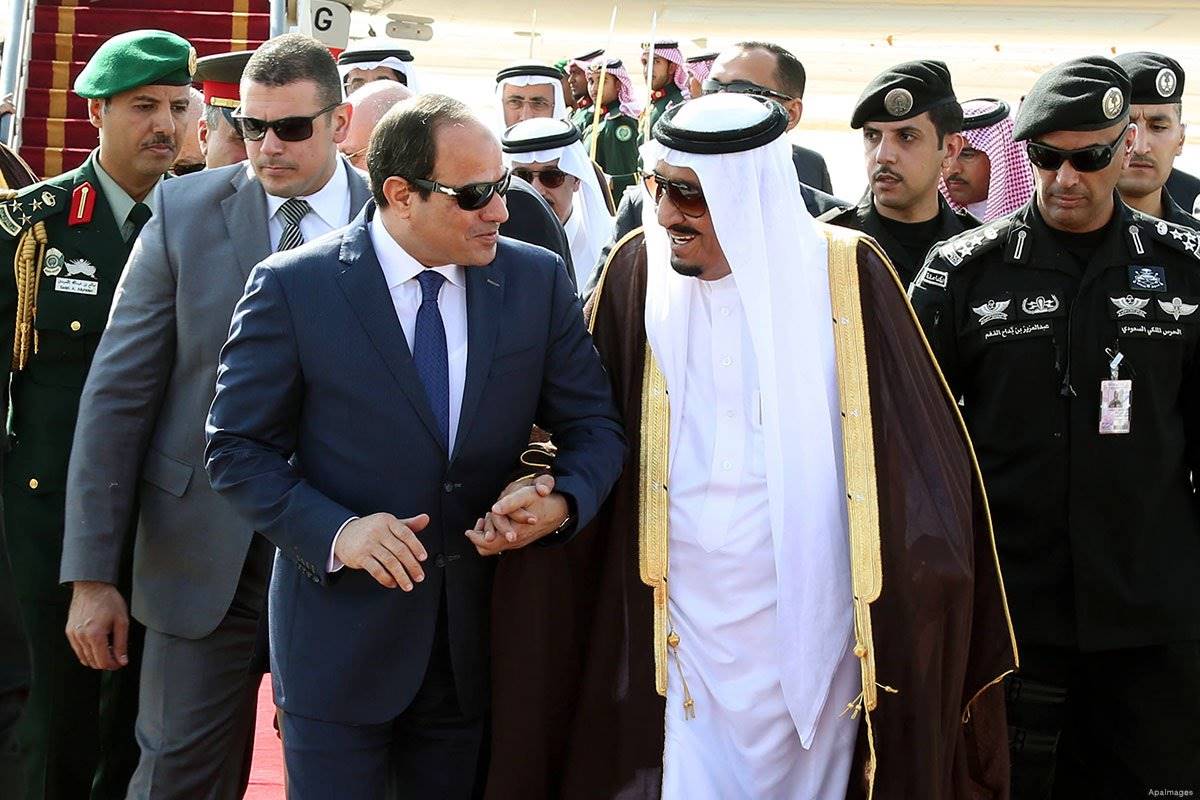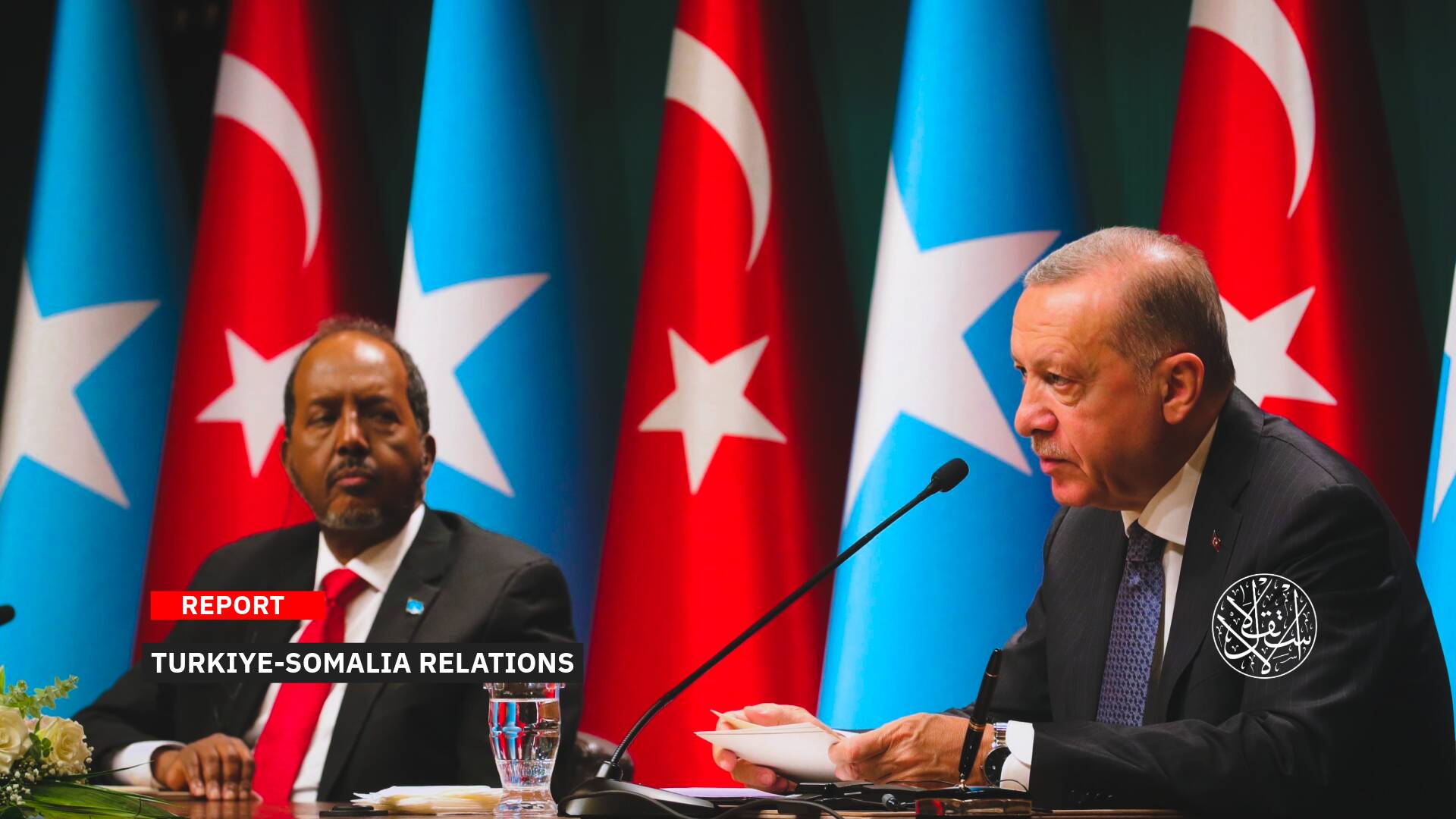How Does the Egyptian–Emirati Rapprochement Negatively Affect Saudi Arabia?

Egyptian–Emirati relations are experiencing a state of harmony these days that were not witnessed even after the 2013 coup, despite the great divergence in views on many regional files.
Abu Dhabi was one of the main sides of Sisi’s accession to power after its strong participation in the plot to kill the revolution and overthrow the government of the late President Mohamed Morsi.
The current rapprochement comes at a time when Cairo and Abu Dhabi’s relations together suffer from tensions with Riyadh, represented by a package of evidence.
While Saudi Crown Prince MBS was the third of Sisi-bin Zayed’s various meetings during the past years, he completely disappeared from the scene during the last two meetings between his allies, the Gulf and the Arab.
MBS was absent from the Gulf–Arab summit hosted by Abu Dhabi on January 18, in which Sisi and Bin Zayed participated.
Before that, he missed the El-Alamein summit hosted by Egypt on August 23, 2022, and attended by the leaders of the UAE, Bahrain, and Jordan.
This rush to dry up the sources of tension between Cairo and Abu Dhabi, and to accelerate the pace of a relationship similar to a bilateral alliance joined from time to time by Jordan and Palestine, may not appeal to Riyadh.
Riyadh is also taking another strategy based on building a map of new alliances joined by yesterday’s opponents, Qatar and Turkiye, with Washington’s maneuver by strengthening channels of communication with Moscow and Beijing.
Riyadh’s Exclusion
The most embarrassing statement for Cairo was made by Saudi Finance Minister Mohammed al-Jadaan on January 18, during his participation in the World Economic Forum.
Al-Jadaan said: “We are used to providing grants and direct aid without conditions, and we are changing that, working with multilateral institutions to actually say that we need to see reforms. We want to help but we want you to do your part.” Egyptian analysts saw this statement as insulting to the Egyptian state, though it did not explicitly mention Cairo.
Before him, the atmosphere was intense between media professionals close to the authorities of the two countries, between an attack and criticism of the army from Turki al-Hamad, a journalist close to MBS, and then mockery of the general economic situation in Egypt by the adviser to the crown prince for security affairs.
In response, a fierce attack against the Saudis from the editor-in-chief of the Egyptian government newspaper Al-Gomhuria, as he described the Gulf countries as “naked barefoot” people.
He was also preceded by the description of the chairman of the board of directors of the Egyptian newspaper Al-Dustour, Mohamed el-Baz, to his colleague Amr Adib, a journalist at the Saudi channel MBC Egypt, as a “Saudi agent” and implements the agendas of his sponsor, in reference to the advisor to the Saudi Entertainment Authority, Turki al-Sheikh.
The tension in relations between the two countries was expected in light of the outstanding files between them; issues that contributed to the emergence of the suppressed tension surfaced during the few months, including Egypt’s reluctance to hand over to Saudi Arabia the islands of Tiran and Sanafir, which it ceded according to the maritime border demarcation agreement signed between the two countries in 2018.
In addition to the file of Saudi investments in Egypt, which has recently been subjected to a clash with the Egyptian trends regarding the quality and size of the assets that the kingdom is scheduled to invest in.
Riyadh wants to expand its investment influence in certain sectors, but Cairo has remarkably refused that, putting some controls that force the kingdom to make the Egyptian government—especially the military institution—a partner in these investment operations, which it considered more like guardianship over it.
In response, instead of Saudi Arabia pumping the $10 billion it pledged in April 2022, it has only pumped 1 and a half billion into the Egyptian market.
MBS no longer urgently needs the Sisi regime and its support to consolidate the pillars of his rule, compared to what it was before when he was facing international isolation.
Sisi also did not return to the level of great need for Saudi support—despite the stifling economic crisis facing the country—after he expanded the circle of donor and supporting countries, especially after clinging to power and tightening his grip on all reins of affairs since 2014 until today, and therefore each party is no longer keen not to anger the other, leaving their committees and media arms to talk as they wish.

UAE Dispute
The tension in relations arose between the two allied Gulf neighbors years ago due to divergent views on the Yemeni file and the Emiratis’ attempt to serve their own agenda at the expense of the interests of the coalition forces.
Moreover, the UAE sensed Riyadh’s efforts to threaten UAE’s economic influence in the region and exclude Dubai’s leadership, specifically as a global trade center.
On February 15, 2021, the Saudi government announced its intention to stop contracting with any international company that does not have a regional headquarters inside the kingdom as of 2024.
This means closing all headquarters in other Gulf cities, especially Dubai, and transferring them to Riyadh or Jeddah, which provoked the anger of the Emiratis.
Consequently, the Emirati media and some of those affiliated with the authority there opened fire on the new Saudi trend, most notably the former Deputy Chief of Dubai Police, Dhahi Khalfan.
Speaking to The Independent, Cinzia Bianco, a researcher at the European Council on Foreign Relations, believes that tension between Abu Dhabi and Riyadh has been increasing sharply for a long time due to the fact that the two neighbors are “reassessing the balance of power in their bilateral relationship in a way that applies to the regional and international arena.”
In its lengthy report, the newspaper quoted Gulf observers as saying that one of the main sources of this ongoing conflict between the two countries is that the UAE sees itself as “a competitor to Saudi Arabia and not as a small partner.”
This prompted it to move individually away from the Saudi leadership, which angered the allied neighbor and prompted it to reassess relations with it again.
Riyadh’s dominance of the global oil market and its control over OPEC’s decision played a pivotal role in exacerbating tensions between the two countries, the British newspaper said, in addition to the Saudi crown prince’s new directions regarding repairing relations with Turkiye and Qatar, which was not accepted by Abu Dhabi or Cairo at the time, even if it seemed otherwise.

Acquisition of Egyptian Assets
Since the strained relations between the two teams, the UAE and Egypt on the one hand and Saudi Arabia on the other, Sisi opened Egypt’s doors to Emirati investments, giving them its most successful companies, most recently ADNOC Distribution’s acquisition of a 50% stake in Total Energies Marketing Egypt from Total Energies Marketing Africa.
The number of acquisitions of Egyptian assets by the UAE Sovereign Fund and Saudi Arabia more than doubled in 2022, reaching 66 acquisitions compared to 30 in 2021, according to the Enterprise Economic Bulletin, which revealed that the UAE has the lion’s share of these operations.
The bulletin pointed out that the UAE investments included the most profitable areas in the Egyptian market, from banking and financial services to the industrial and energy fields, with acquisitions including 16 deals in the banking sector, nine in the industrial sector, and two in the energy sector.
Abu Dhabi’s sovereign wealth fund, through ADQ, acquired the largest stake in Egypt’s two largest fertilizer companies (Abu Qir Fertilizers and Misr Fertilizers Production Company), became the largest independent shareholder in CIB, the country’s largest private sector bank, and leading fintech company Fawry (11.8% of the company versus USD 55 million).
Among the most prominent UAE acquisitions of Egyptian assets is the acquisition by a consortium led by Aldar Properties and ADQ Holding Group of an 85% stake in the Sixth of October Development and Investment Company (SODIC) at the end of December 2021.
In July 2022, UAE’s Agthia acquired 60% of Abu Auf, a coffee company, while Abu Dhabi Ports Group acquired a 70% stake in Egypt’s Transmar International Ltd. and Transcargo International (TCI).











